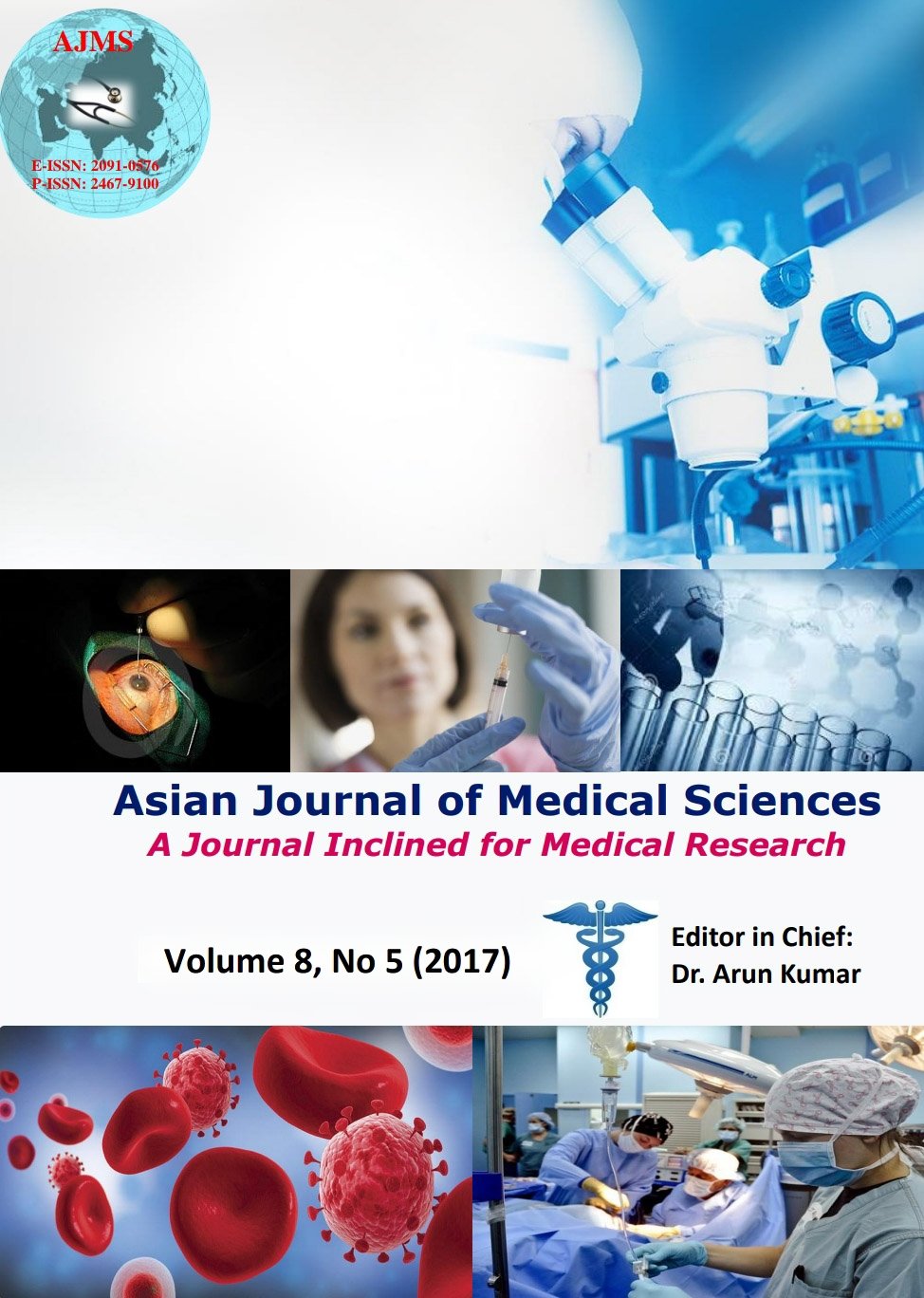Prevalence of intestinal parasitic infections among people living with HIV/AIDS visiting a central hospital of Kathmandu Nepal
Keywords:
PLHA, ART, IPI, CD4 T-cell countsAbstract
Backgrounds: Intestinal Parasitic Infection (IPI) plays a vital role in the prognosis of People Living with HIV/AIDS (PLHA).
Aims and Objectives: In this study, we aimed to measure the prevalence and associated factors of IPI among PLHA and non-HIV patients attending Sukraraj Tropical and Infectious Disease Hospital, Teku, Kathmandu.
Materials and Methods: A cross-sectional study was conducted among 193 PLHA and 111 non-HIV patients having either of gastrointestinal disorders. Direct smear, Formalin ethyl acetate sedimentation and Kinyoun’s modified acid fast staining methods were applied to detect intestinal parasites from stool samples and CD4 T-cell counts of PLHA was recorded from ART centre of hospital.
Results: The overall prevalence of IPI was found to be 16.12% (19.17% in PLHA and 10.81% in non-HIV subjects). Prevalence was higher in PLHA (p<0.06) in which poly parasitic infection was common (24%) with the protozoa predominating over helminths. CD4 T-cell counts <200/μl (p<0.06) and diarrhoea (p<0.06) were associated with increased IPI in PLHA. Cryptosporidium parvum was found in 19.05% cases of PLHA having CD4 T-cell counts <200/μl.
Conclusions: The higher prevalence of opportunistic protozoa among PLHA indicates the need of routine parasitic investigation using sensitive methods so that it will be helpful for the proper therapeutic management.
Asian Journal of Medical Sciences Vol.8(5) 2017 87-92
Downloads
Downloads
Additional Files
Published
How to Cite
Issue
Section
License
Authors who publish with this journal agree to the following terms:
- The journal holds copyright and publishes the work under a Creative Commons CC-BY-NC license that permits use, distribution and reprduction in any medium, provided the original work is properly cited and is not used for commercial purposes. The journal should be recognised as the original publisher of this work.
- Authors are able to enter into separate, additional contractual arrangements for the non-exclusive distribution of the journal's published version of the work (e.g., post it to an institutional repository or publish it in a book), with an acknowledgement of its initial publication in this journal.
- Authors are permitted and encouraged to post their work online (e.g., in institutional repositories or on their website) prior to and during the submission process, as it can lead to productive exchanges, as well as earlier and greater citation of published work (See The Effect of Open Access).




